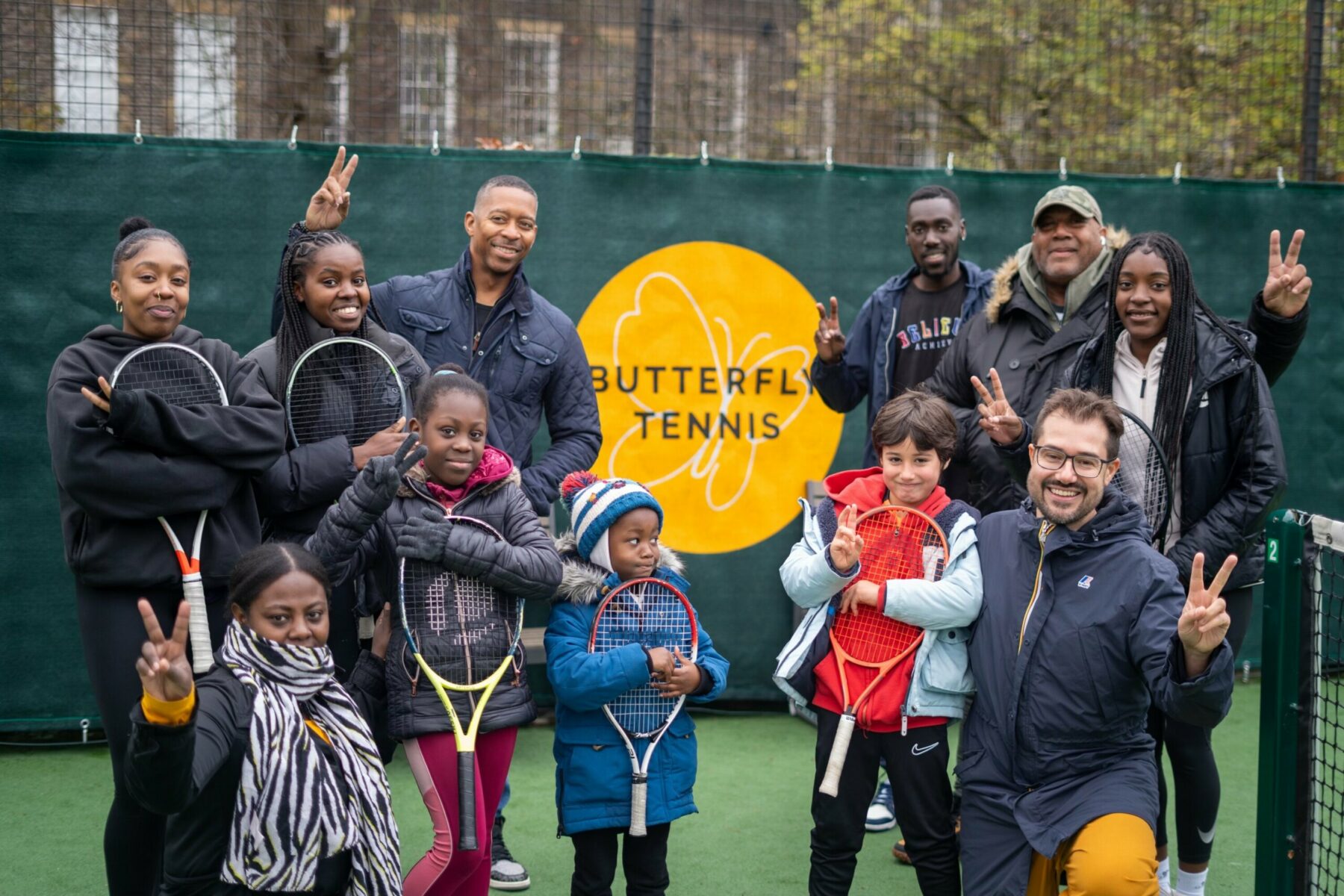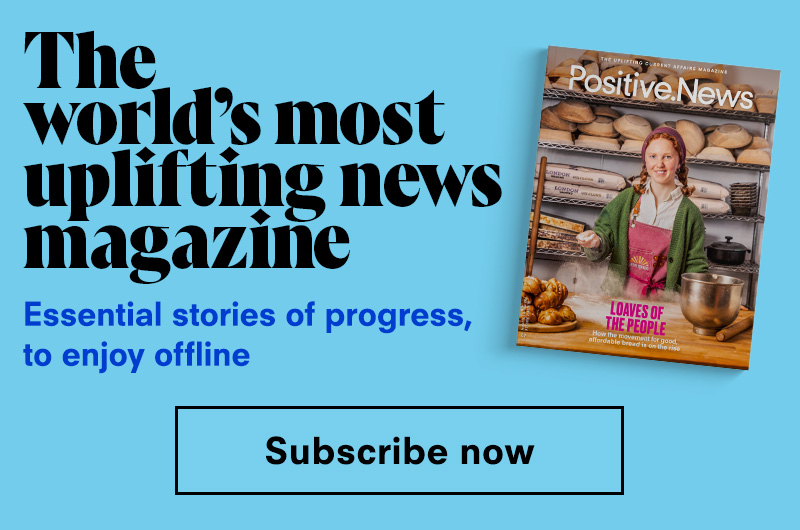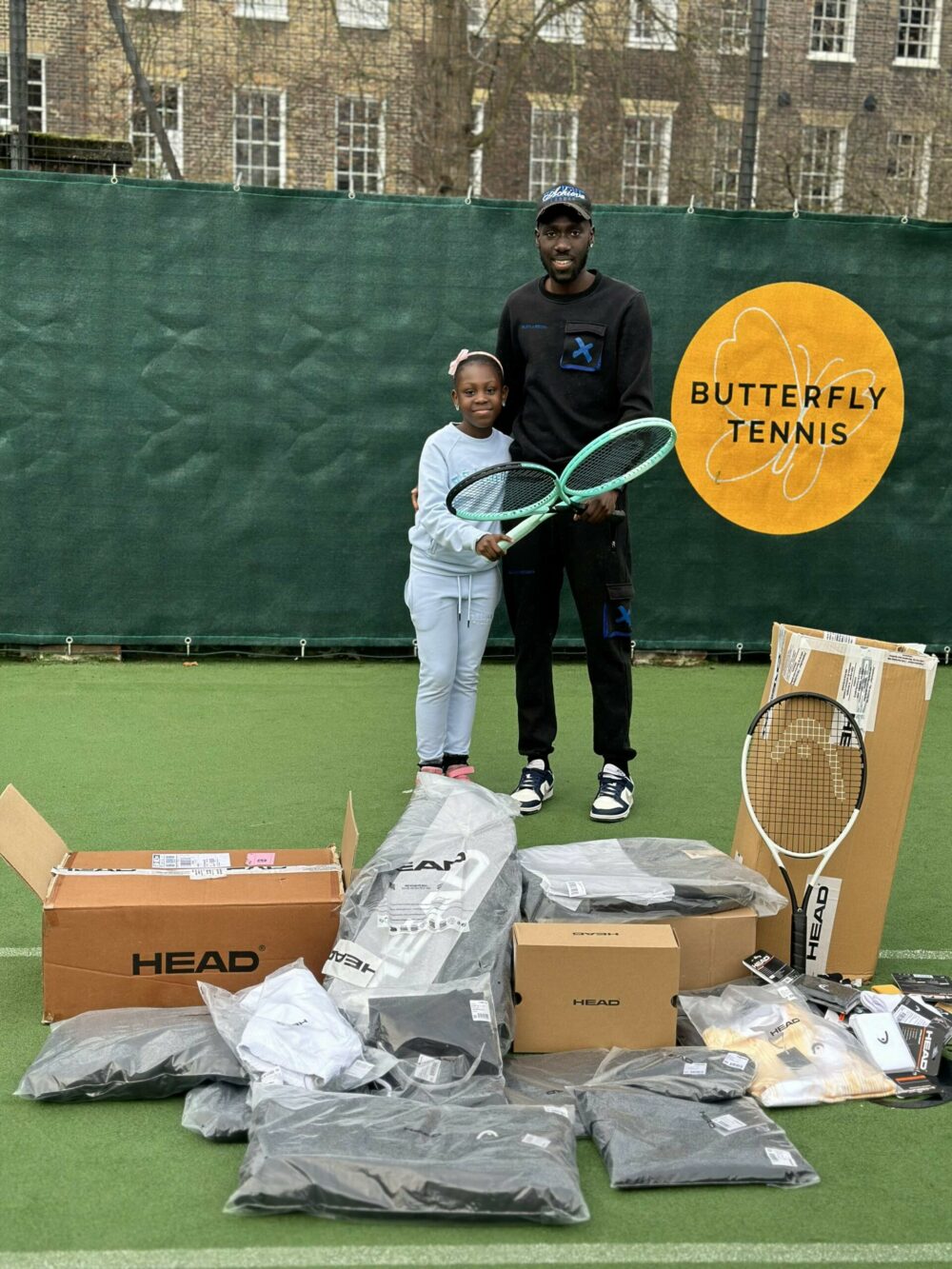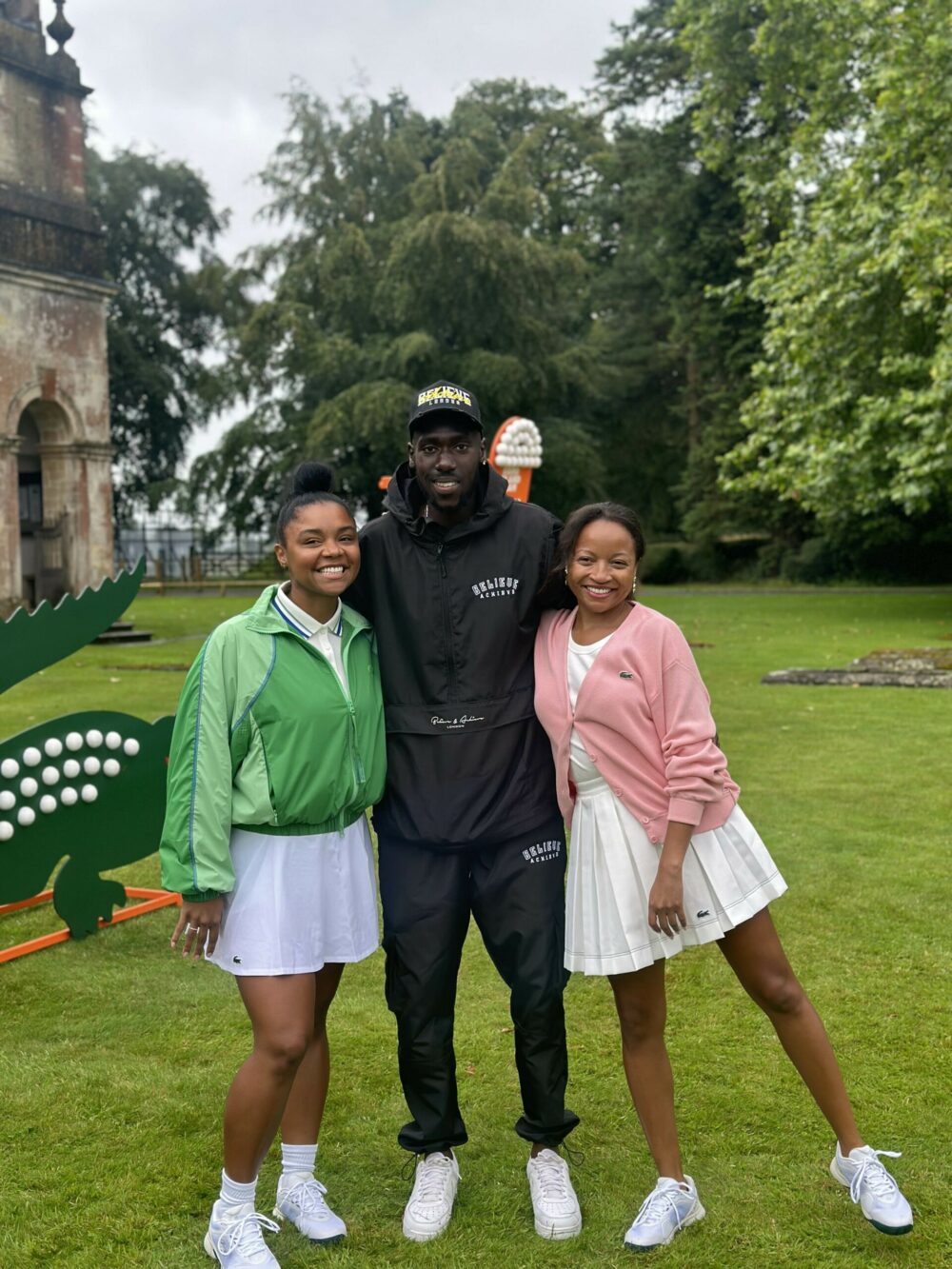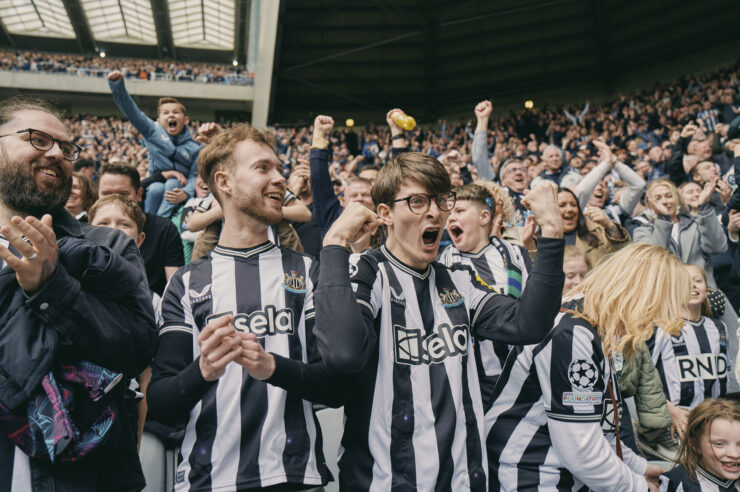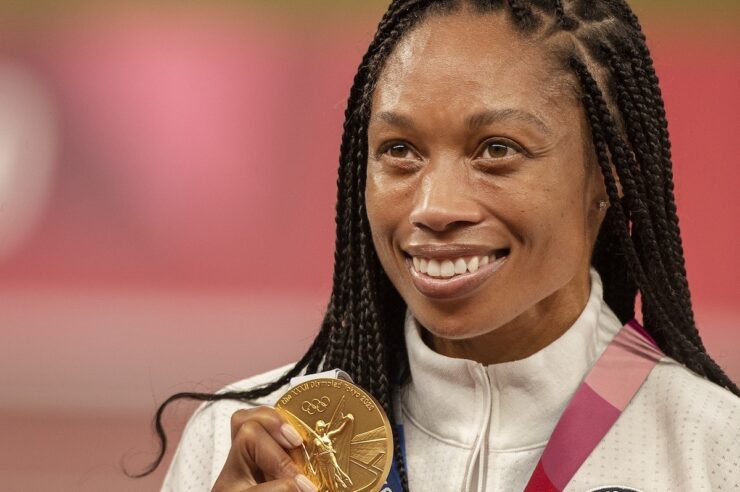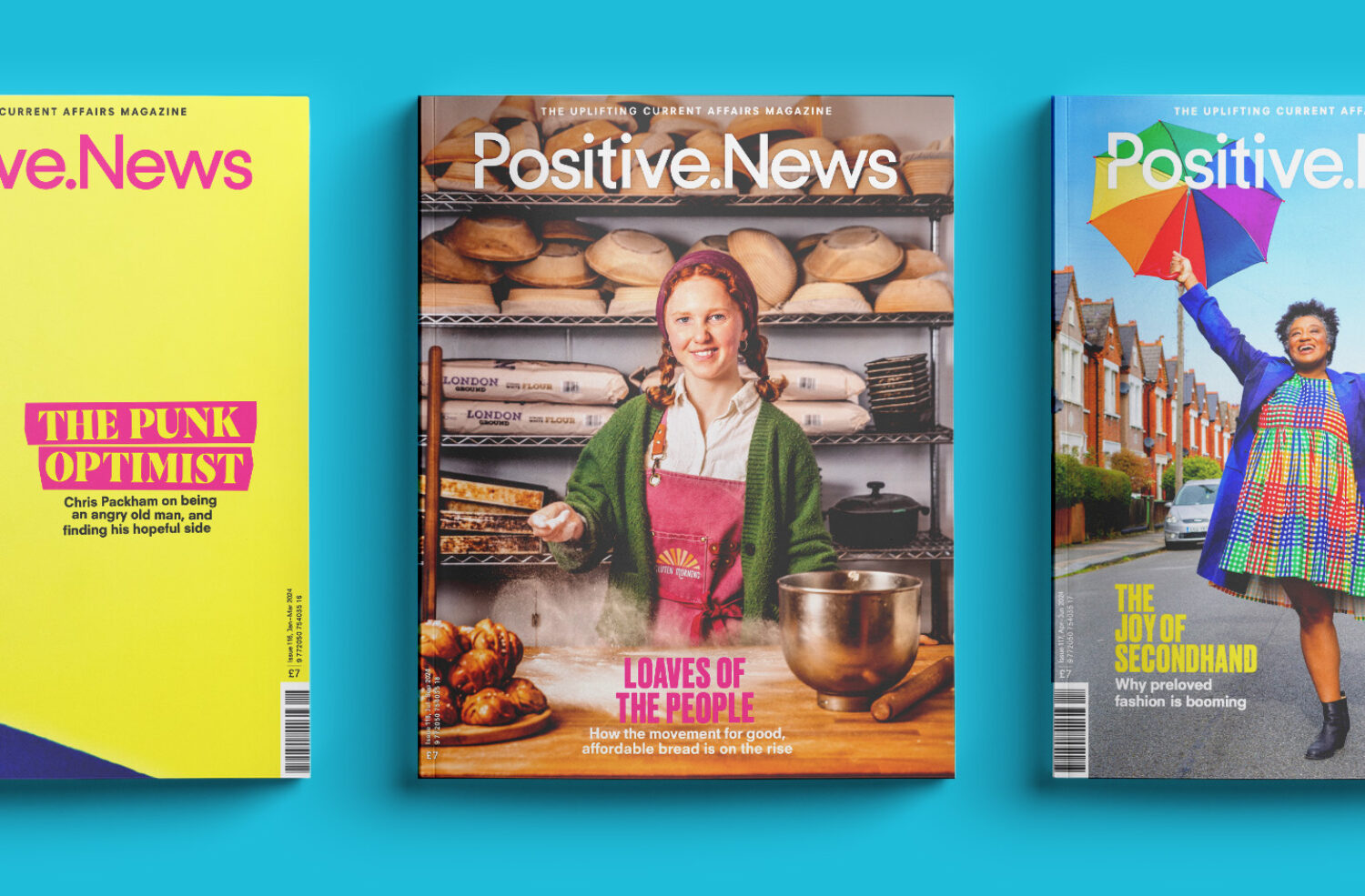As Wimbledon returns, we catch up with tennis coach Arum Akom, who is pushing for change in his beloved sport
Arum Akom will stop to take a breath when he’s sitting in the players’ box at Wimbledon watching one of his players on Centre Court. Until that day, you’ll find the 25-year-old tennis coach on court at The Butterfly Tennis Club in Camberwell, south London, where he runs a free bursary programme for local children, coaches juniors who dream of going pro and is raising the next generation of leaders via his new diversity initiative, Black Tennis Mentors.
Tennis is enjoying a post-pandemic global boom, and the sport – once perceived as white and middle-class – is changing. The number of people playing it are increasing: up 33% in the US between 2019 and 2022, with a 46% increase in black players.
In the UK, figures from a recent report by the Lawn Tennis Association (LTA) point to tennis as being one of the more gender-balanced sports with 40% of players female. That said, only 24% of accredited coaches are women. Similarly, 16% of players are from a diverse ethnic background, but only 4% of coaches, 3% of officials.
Akom wants to address the imbalance. He himself knows the barriers black players and players from lower socio-economic backgrounds face. But, in telling his story, focuses on his good fortune to grow up – sports-mad – two minutes from Burgess Park tennis courts, home to one of the country’s biggest and most ambitious community tennis programmes. “I was one of those children who wanted to play regularly,” he tells Positive News. “I was fortunate to be at Burgess Park where they offered us free or discounted tennis for most of my career.”
In 2020, when the Butterfly Tennis Club was looking to reflect the diversity of its on-court community, they sought out Akom, not only for his stellar CV – a sport scholarship to the University of Roehampton, an MSc in sports management from the University of East London, and LTA coaching qualifications, Levels 1, 2 and 3 (achieved while doing his A-levels) – but for his lived experience.
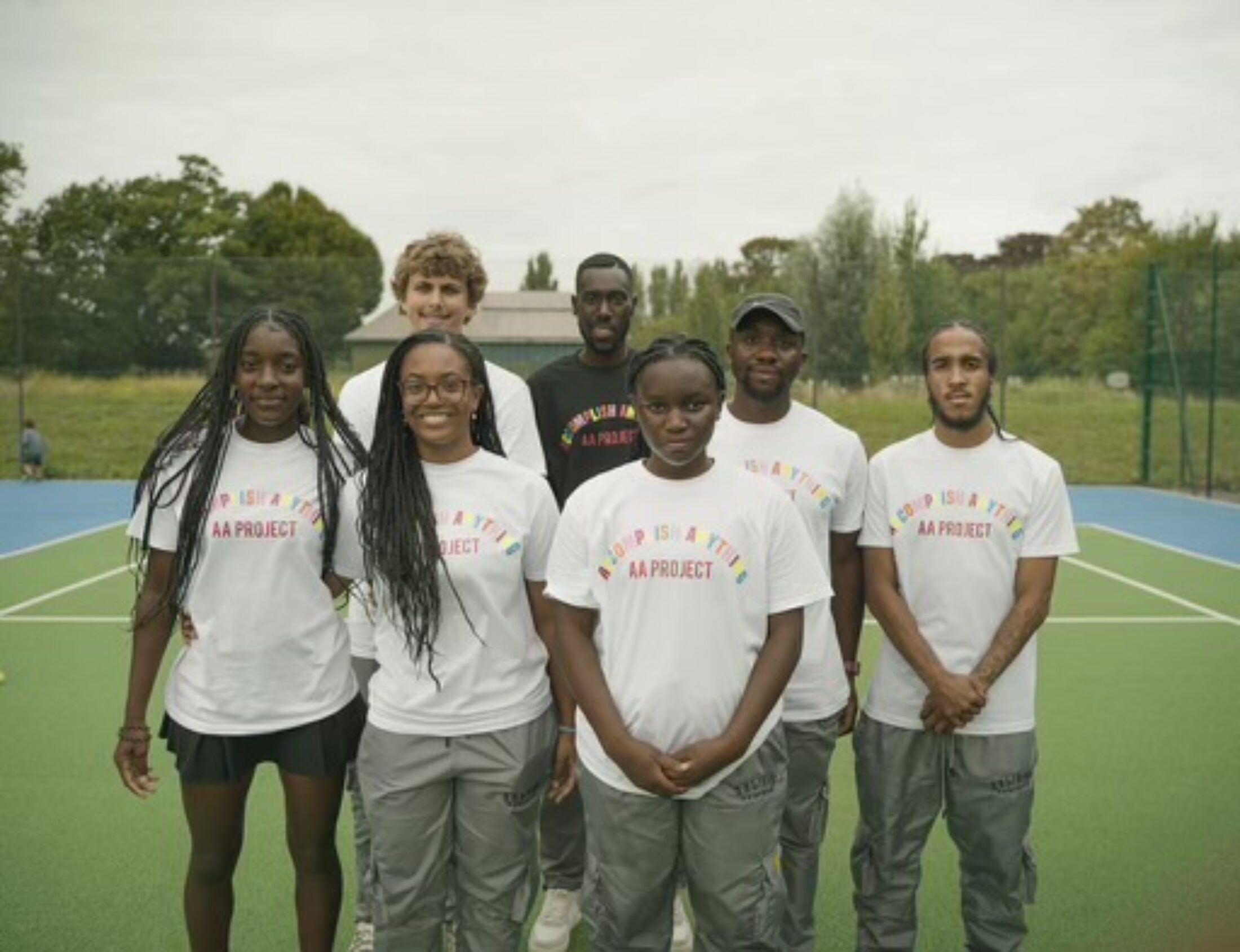
Arum Akom with a cohort of young tennis hopefuls
His first move was to establish a bursary programme to provide free tennis after school and during school holidays for children from lower socio-economic backgrounds. Tennis is expensive: lessons, rackets, restrings, balls, shoes, court fees and travel costs soon mount up. Financial support comes from membership, fundraising, and bodies such as Sport England and the LTA, with equipment sponsorship from the sportswear brand Head. Akom has turned down big-name apparel deals, partnering instead with footballer Reece Placid’s brand Believe & Achieve, whose message aligns with Akom’s personal platform Project AA (‘Accomplish Anything’). In 2023, his work won him the title of Game Changer in the Community at the inaugural Tennis Black List awards.
Did Akom ever want to turn pro? “Never. I think that’s because I realised from a young age the barriers I faced. Tennis was just social for me, I knew that, and I was happy with that.”
That said, he is ambitious for his own players, devoting two hours a day, five days a week, of his own time to coach eight-year-old protege Nazrah. Working with Nazrah, he puts into practice his own learning from his mentor, high performance coach Barry Bartley, who started with Akom at 16. They call this passing on of knowledge a “conveyor belt”. Together, they’re getting closer to their end goal.
“It’s time for champions from ethnically diverse backgrounds to be produced in the UK,” says Akom. “It hasn’t been done and it needs to be done. That’s the reason I’m working with players like Nazrah. We want to help our own and show that we can produce, because it’s possible.”
The US is further on, thanks to the ‘Venus and Serena effect’, and a new generation of talent including Ben Shelton, Frances Tiafoe and US number one Coco Gauff.
Akom cites The Black Girls Tennis Club and the Washington Tennis Education Foundation as trailblazers. Representation really is key, he believes. So, when he takes on a modelling job – he’s worked with Fila and Lacoste – he’s quite literally changing the face of tennis.
It’s time for champions from ethnically diverse backgrounds to be produced in the UK. It hasn’t been done and it needs to be done
Nazrah and her mother have become like family, he says. They share east African roots: Akom’s family is Ugandan, Nazrah’s Ethiopian. “We have a connection that goes beyond the tennis court. We eat similar foods, have similar culture.” Last year, Akom took them to Wimbledon, getting up at 5am to join the famous queue. “Imagine that: the mum coming from Ethiopia, only hearing Wimbledon on the radio when she was a kid, always dreaming about going.”
Whether at grassroots or high-performance level, it helps to see others like you, he insists. Akom recently delivered the new Prime Video LTA Youth Girls sessions at the club and saw an instant uptake in girls playing. Meanwhile, Black Tennis Mentors, co-founded with Jabilayh Asante, has got off to a good start, working on a new Black and Afro-Caribbean tennis society in north London and with Asante on her mobile club Back It.
“I don’t know where I want Black Tennis Mentors to go yet. The reason I don’t know is because there’s so much it can do and it involves other people,” he says. “It’s not what Arum wants out of it; it’s what everybody wants out of it.” It all begins in the community.
Main image: Arun Akom
Support solutions in 2024
Positive News is helping more people than ever to get a balanced and uplifting view of the world. While doom and gloom dominates other news outlets, our solutions journalism exists to support your wellbeing and empower you to make a difference towards a better future.
But our reporting has a cost and, as an independent, not-for-profit media organisation, we rely on the financial backing of our readers. If you value what we do and can afford to, please get behind our team with a regular or one-off contribution.
Give once from just £1, or join 1,400+ others who contribute an average of £3 or more per month. You’ll be directly funding the production and sharing of our stories – helping our solutions journalism to benefit many more people.
Join our community today, and together, we’ll change the news for good.
